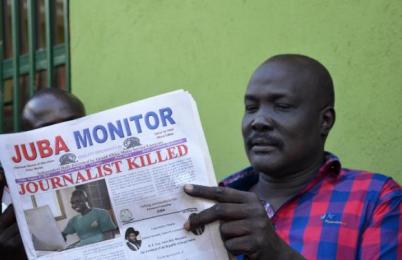Veteran S. Sudanese journalist quits opposition over reforms
September 20, 2016 (JUBA) – A former South Sudan newspaper editor who quit journalism for politics, has tendered in his resignation and terminated his membership from the armed opposition movement he joined after a peace deal was signed in 2015.

“I just want to inform you that I have decided to leave politics. I have resigned from SPLM-IO. I have written to the First Vice President, General Taban Deng Gai of my decision”, Akeen said Tuesday.
The veteran journalist said he joined the movement hoping to see reforms in the party.
“When I decided to join the SPLM-IO, I was hoping there would be reforms. But the way I am looking at the things, nothing is going to change. So I decide to leave and retire to my private life because the kind of politics I am seeing is like a detention cell. There are not going to be reforms. You know that the country is now being run without the constitution. So how will work on reform if there is no constitution? Until the constitutional review committee has not completed its work. It is a difficult situation. South Sudan now is a country without constitution”, he explained.
Akeen’s abrupt resignation, analysts say, affects hope for reforms in South Sudan.
According to the outspoken scribe, influential politicians are “trying to establish control over financial resources – first and foremost and the defense industry instead of using the agreement to address the root cause of the conflict by embarking on reforms.
Akeen said he was afraid whether South Sudan’s new first vice president would champion reforms in accordance with the stipulations of the peace agreement signed in August last year.
(ST)
